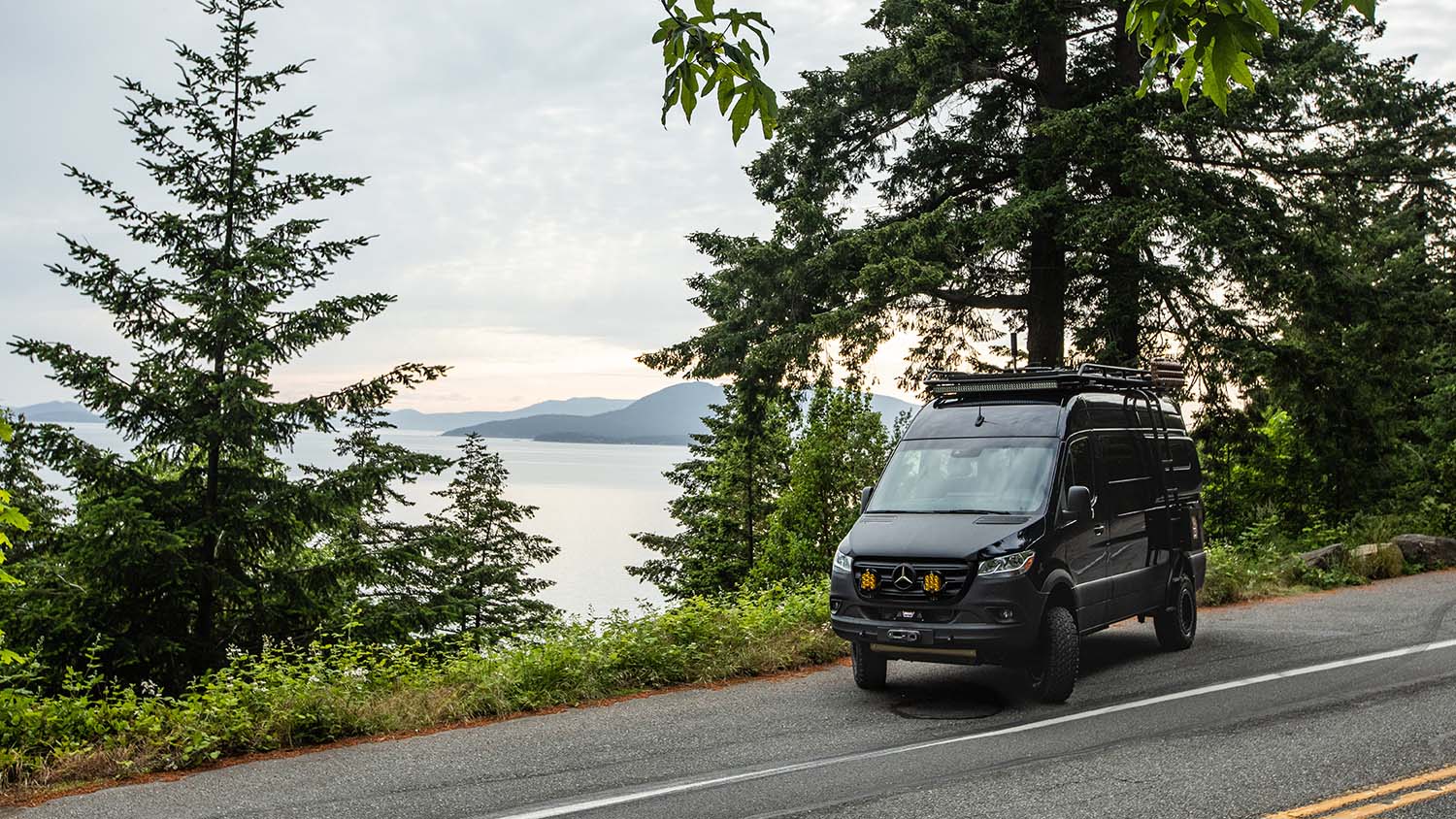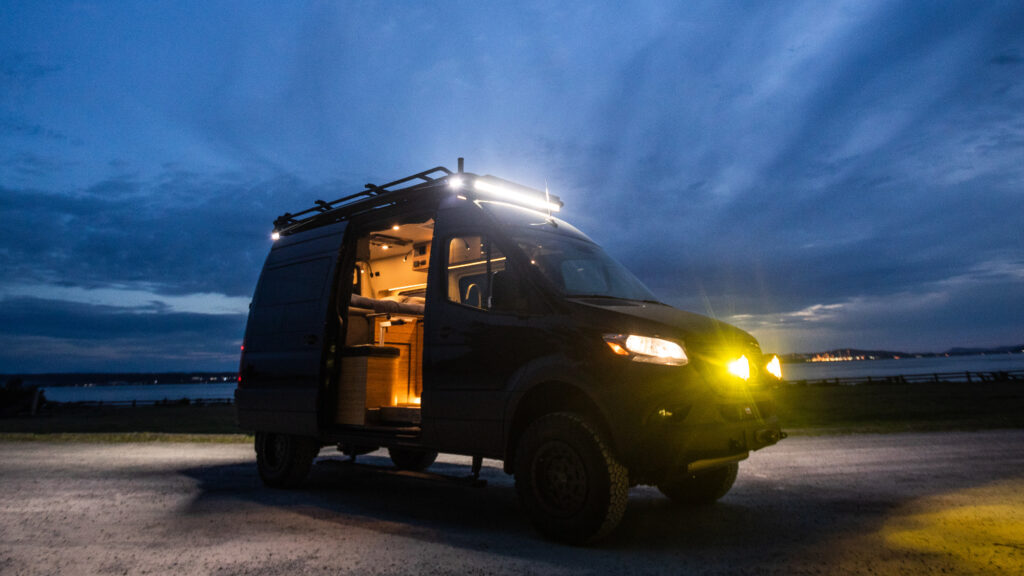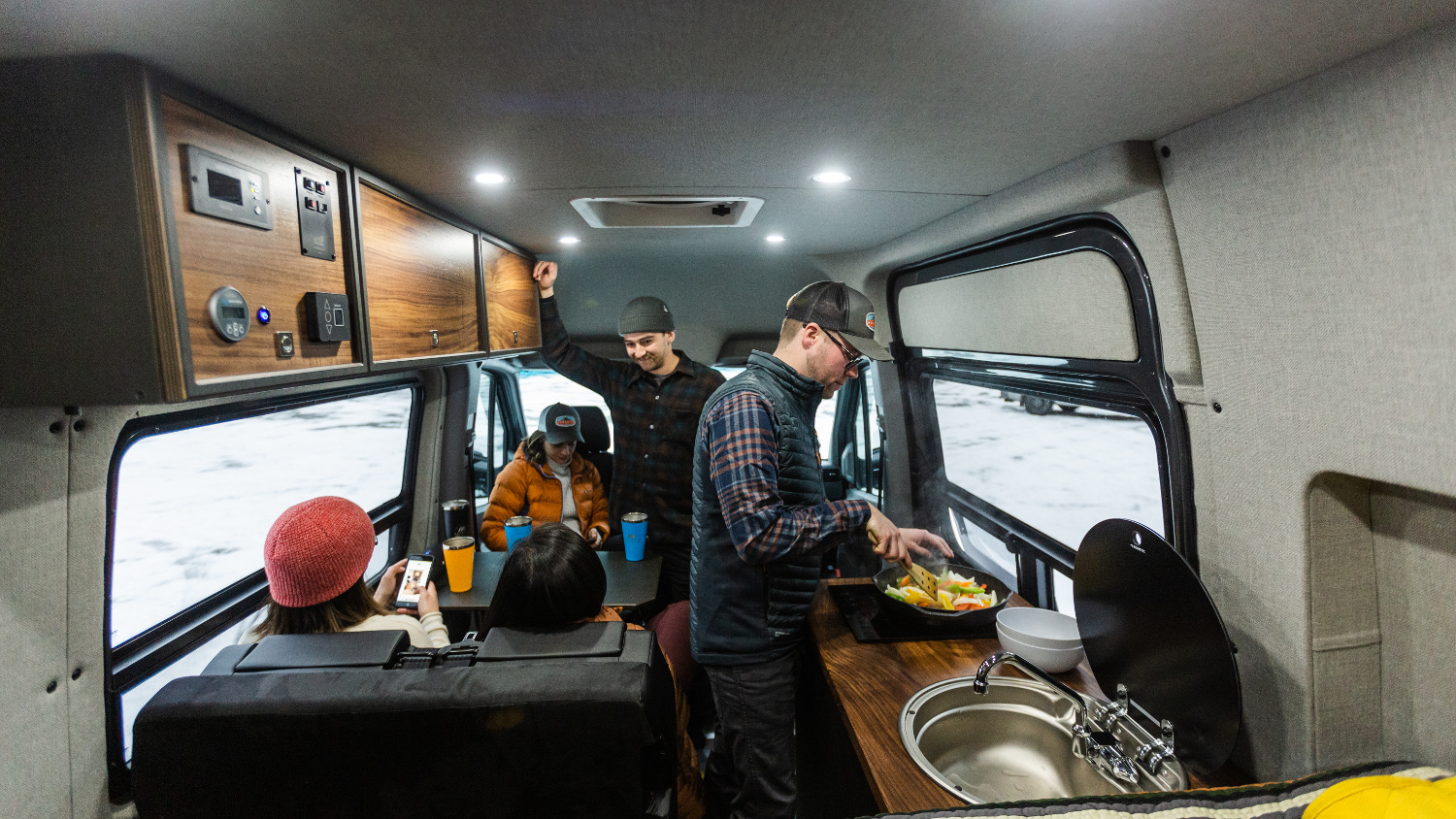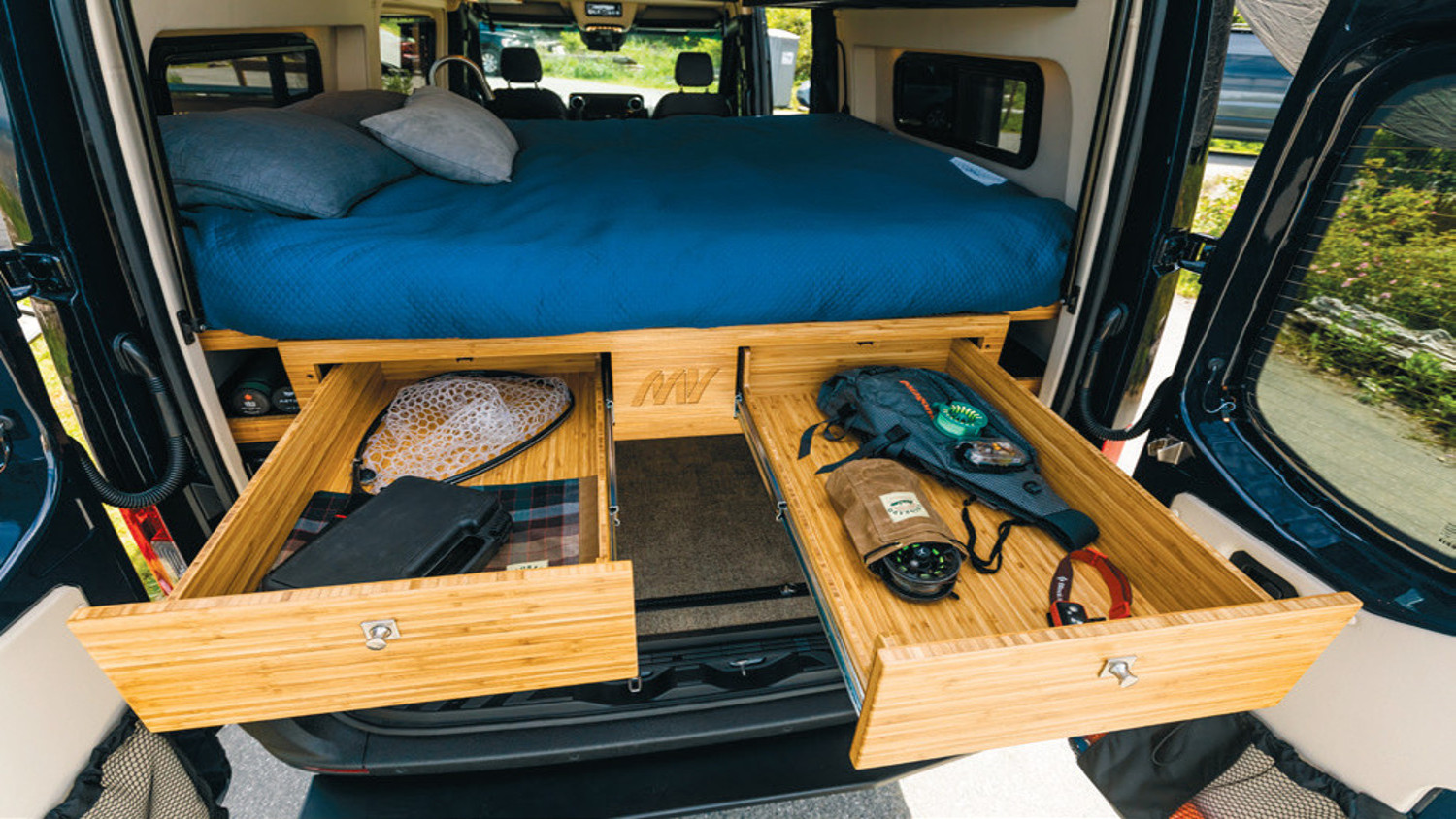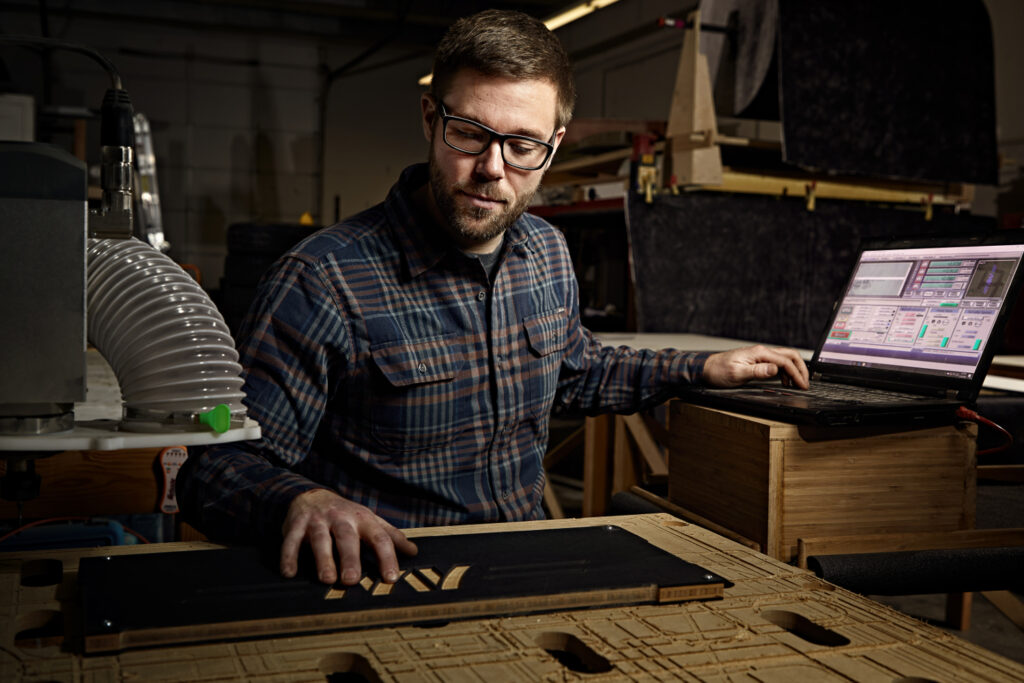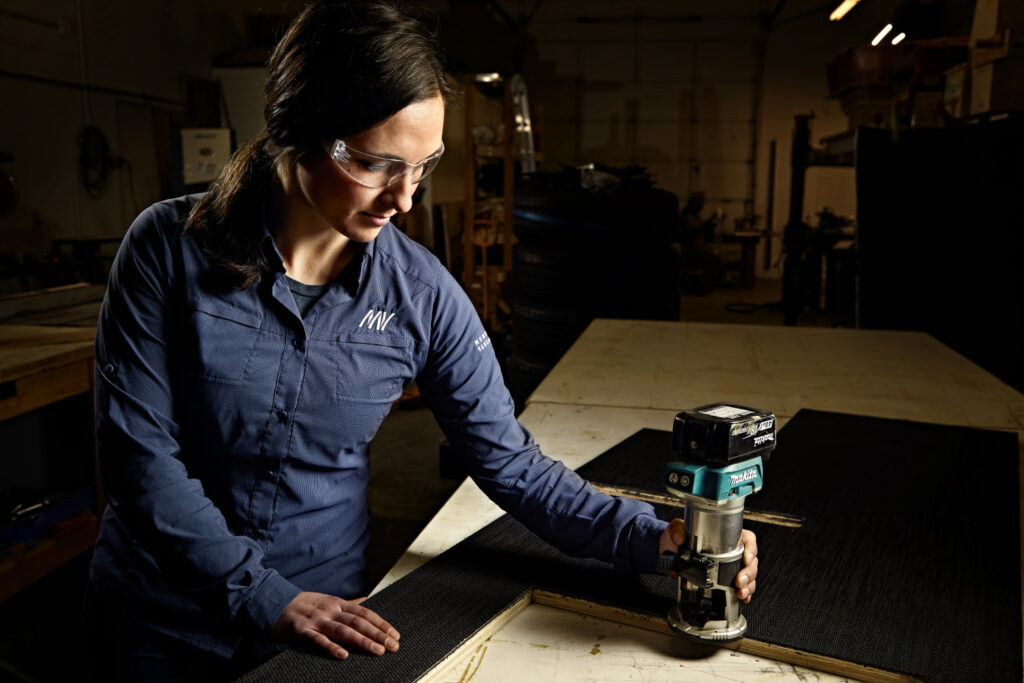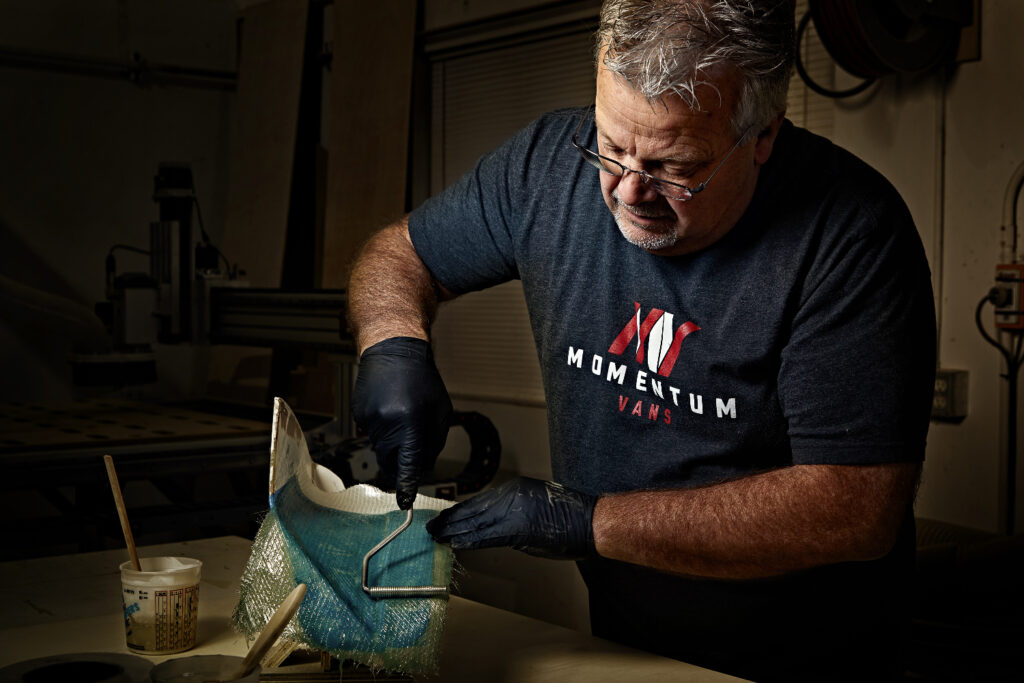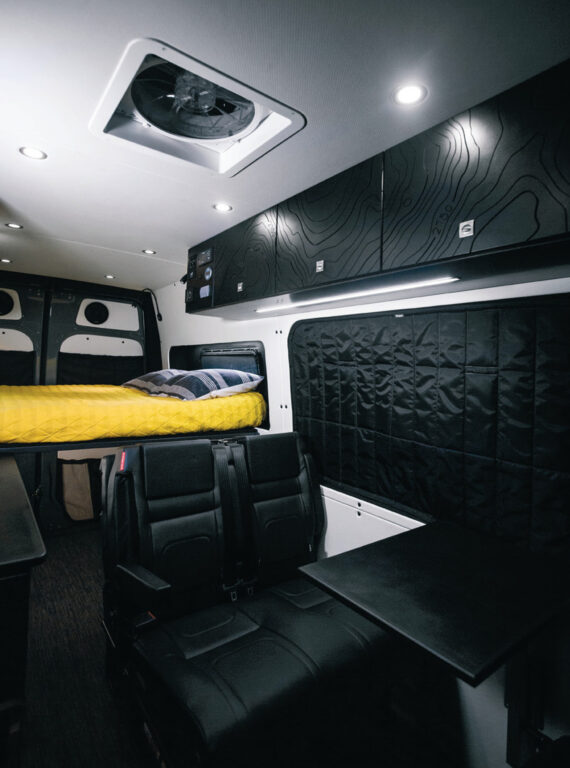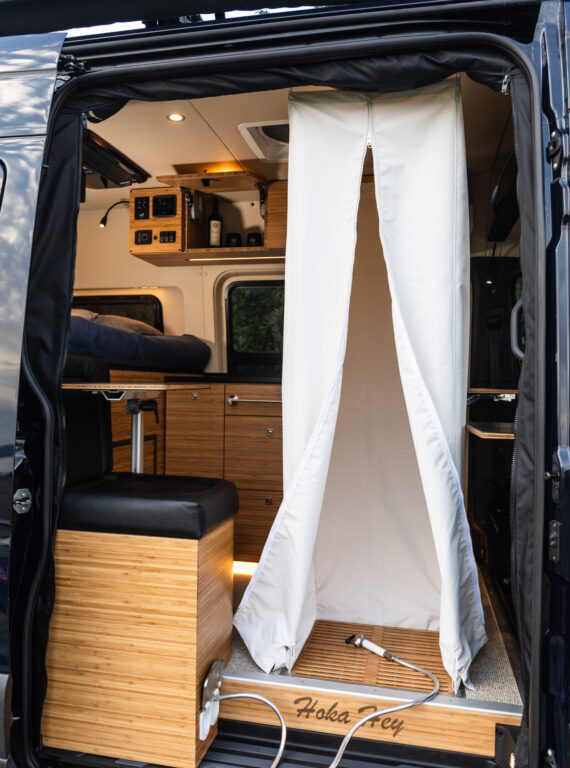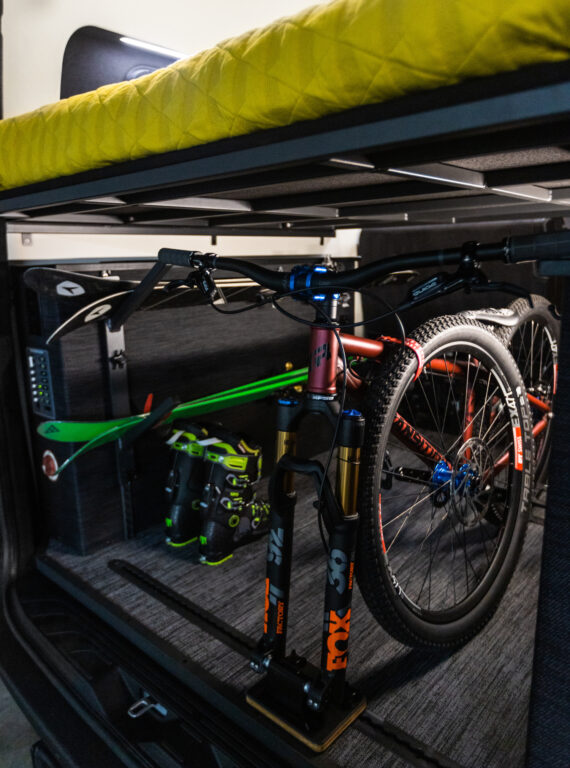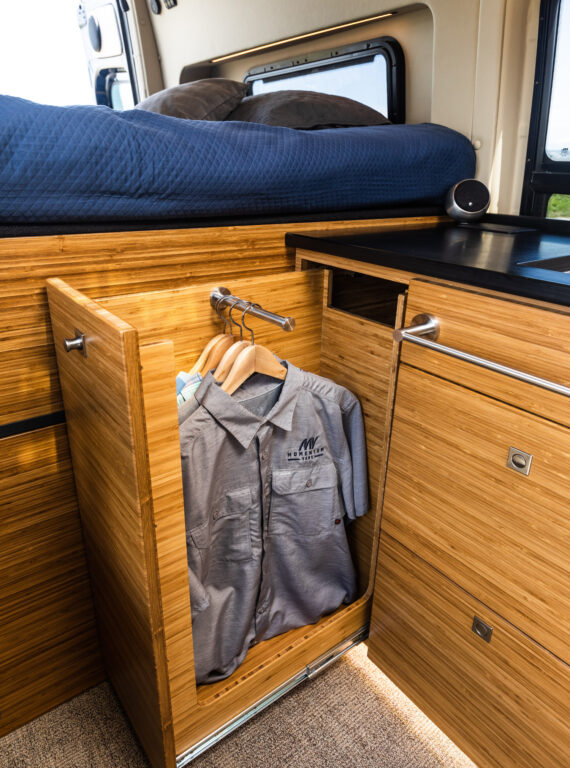A family-owned company is transforming humble cargo vans into custom-made adventure camping vehicles. Stephen Holmes speaks to Momentum Vans, where ingenious design means wanderlust comes with a touch of luxury
Throwing your things into the back of a van and driving off to explore the great outdoors is something many of us can only dream of right now. That kind of Instagram-friendly freedom is a far cry from our current cold winter lockdown.
Yet for a lucky few, and perhaps many more in future, a luxury base from which to bike, ski or simply work remotely is now a possibility. And it comes with the bonus of filling your window with whatever spectacular scenery your chosen destination has to offer.
Momentum Vans make this possible for customers. It transforms the reliable Mercedes-Benz Sprinter van, a workhorse for thousands of tradesmen and businesses, into a luxury cabin on wheels, containing everything you could need for your bespoke escapades.
The recreational vehicle (RV) sector is booming right now and Momentum Vans operates at the top end of the market.
Pushing the limits of what can be achieved in a tailored product, its designs are built to a level of quality and finish that wouldn’t look out of place on a luxury yacht.
In fact, the lavish nature of the cabins, complete with tightly packed cubbies and ingenious folding mechanisms, harks back to a heritage in the marine sector. A third-generation family business, CEO Brian Wright’s great-grandfather and grandfather started a boat building business in the US Pacific Northwest in 1955.
They built sporty fibreglass vessels, “the type that you could throw on top of the Griswold family station wagon and take off to the lake to go fishing,” laughs Wright, speaking from Momentum Vans’ headquarters just outside of Seattle.
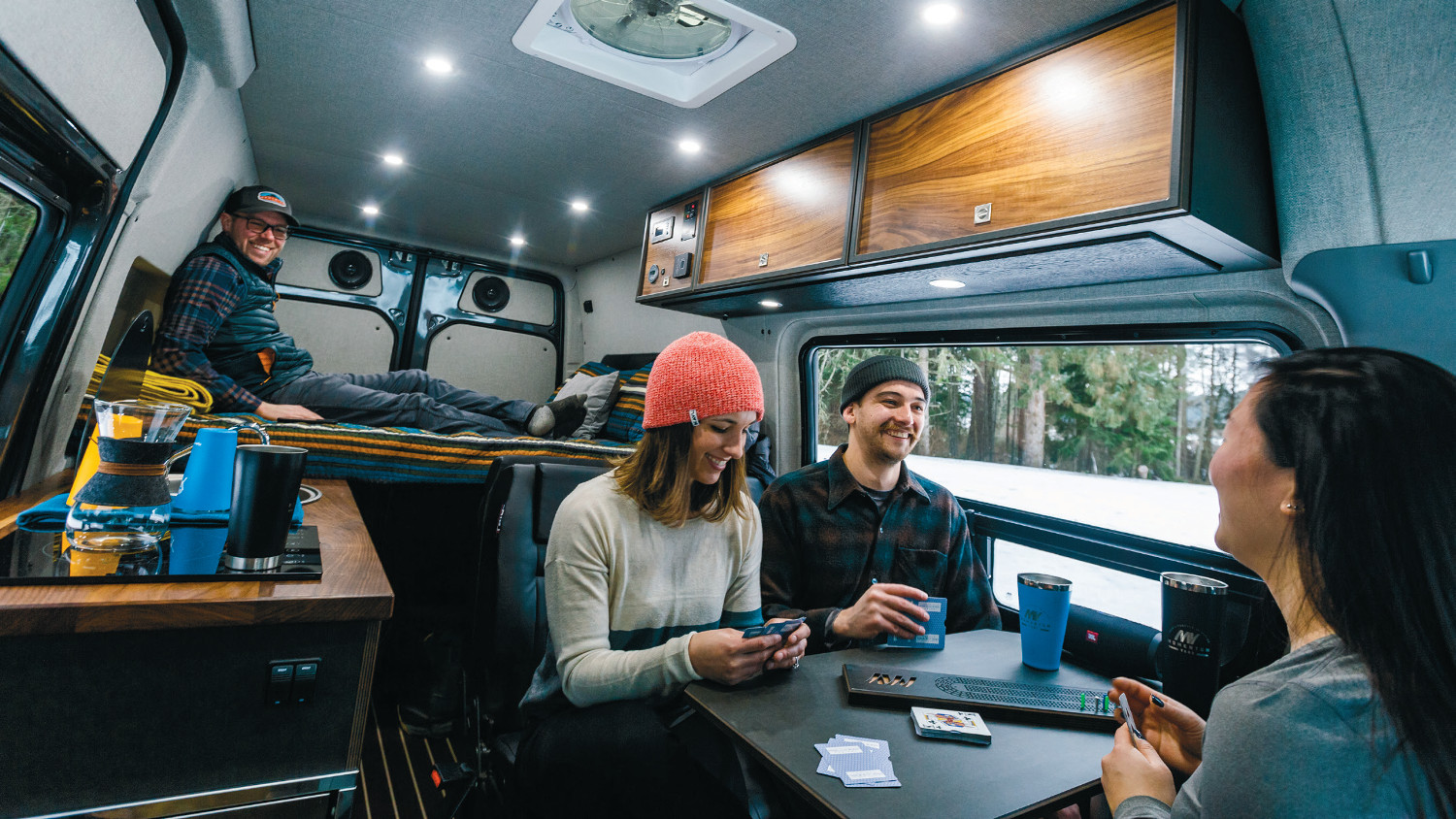
The boat business grew and transitioned into designs honed for outdoor sport, developing a cult following in that corner of America for its well-built and functional products.
This ethos has persisted with Brian Wright who, having qualified as a mechanical engineer, joined his wife Brianna and his father Dave in setting up Momentum Vans in 2018.
The transferrable skills and know-how passed down from designing boat cabins have provided the perfect fit for the new company, and all without the extra work of having to worry about building a boat hull or the intricacies of marine power systems.
“We specifically targeted the custom, high-end, niche build from the beginning,” says Wright. “We really enjoy the custom projects and being challenged by our customers.”
The company’s customer rollcall includes extreme sports fanatics looking to reach farflung, outlying tracks, to photographers aiming to capture the perfect viewpoint.
“We have definitely lived this lifestyle,” says Wright. “With my wife, we ski, mountain bike, paraglide and skydive. We’re doing a lot of outdoor activities, so that relates well to our customers.”
With this first-hand experience, the team at Momentum Vans is always finding clever new ways to accommodate different sporting goods and equipment for outdoor activities, as well as luxuries for winding down afterwards.
“It’s such an interesting market that we’re a part of, and it’s constantly surprising us what people are trying to do in these spaces,” says Wright. “It’s really fun, because I think a lot of ideas come from us being the experts in [using] space. My wife and I lived in a sailboat for three years, and we’ve spent a lot of time in vans ourselves.”
While they have a lot of information to share with customers on how best to use limited space, he adds, they’re constantly being challenged and pushed by customers to do things that at first seem impossible – right until they try them and manage to make them work.
Quality content
There’s no such thing as a typical van layout, but each product is remarkable for just how much can be squeezed, slid and folded into the vehicle.
Full kitchens, multiple beds, entertainment systems and stand-up shower cubicles are all possible, as well as specialist fixings for securing sports equipment.
Almost all of the builds get off-road-specific gear added to them, upgrading suspension, wheels and tyres to aid traction. Large battery banks, compressors and even winches can be mounted.
In a van design named Lumen, for example, Momentum was challenged to fit a family of five into the shortwheelbase variant of the Mercedes Sprinter, while still creating space for a functioning shower.
On top of this, the father also wanted the space available for the van to double as a mobile office when he wasn’t camping with the family on the weekends. To make this happen, a ‘conference room’ set-up was created, including desk space and a flip-down screen for conference calls.
“What sets us apart is our design aesthetic: we’re very conscious of how the space feels and flows,” says Wright.
“I know that can sound like a kind of ‘woo-woo’ subjective term, but we’re really intentional not to build full-height cabinets on both sides of the van, making things feel really claustrophobic. We’re trying to make these vans feel as open and spacious as possible, because they are fairly small spaces.”
Cramming everything in is not good enough if elements clash when moved or impact other spaces when used.
Another factor is being able to stand up to life on the road. As well as looking and feeling luxurious, the interiors need to fit perfectly and maintain this fit, however bumpy the journey gets.
“I have not seen anyone else with as clean and as tight a fit and finish as we have,” says Wright. “So when we’re talking about gaps between wall and ceiling panels, and the way our cabinetry interacts with the vehicle, everything is just designed intentionally and perfectly.”
Getting the design right begins with a customer consultation, carried out either by inviting them in to the design studio or via a web call. Initial concepts take note of how the customer envisages using their van, and the capacity and equipment they’ll need inside. Pencil sketches of a general layout are produced from this description, and from there, the design moves into a quick CAD model.
Once the customer brings in the van to be converted, it can take the team anywhere from a day to several months to build in all the different elements.
Momentum Vans – Digital diligence
In a previous job, Wright spent a lot of time in a sheet metal environment. “I started off going in that direction, but it just seemed that the software for the solid model environment is a bit easier and cleaner than worrying about accidentally putting a flange where we can’t bend a piece of plywood,” he says.
He discovered the Solid Edge for Startups programme, and from there, used the Siemens Digital Industries software for more complicated assemblies; for example, managing parts libraries and components that are used consistently, including the 3D shells for each size of Mercedes Sprinter van. “Then, for on-the-fly manufacturing, we use Autodesk Fusion 360 for quick parts from the shop that maybe our woodworker has sketched up and needs ‘that hour’.
We can react really quickly that way. But it’s also how we programme our CNC router,” he explains.
Both software products serve specific purposes at Momentum Vans, he says. “I use Solid Edge for the global design and layout of the space and any parts that we’re going to be using repeatedly. I feel like I have a better grasp on revision control and that global library with Solid Edge. But then for the quick-and-dirty stuff, our woodworker has a CAD station where he can just draw a simple part and CNC it from Fusion.”
Momentum Vans keeps as much of its production as possible in-house. Its nine employees tackle everything: cabinetry, upholstery and electrical or mechanical upgrades, such as audio-visual and suspension kits.
“Sometimes that may be to our detriment. It’s probably cheaper to pay a job shop for some things,” Wright says – but it pays off, he insists, in terms of faster responses to customer requests.
“Especially with Covid, I’m so thankful that we made the decision to be pretty self-sufficient. In the last year, our biggest headaches have been outside vendors and supplychain issues,” he says. Because of its marine background, Momentum Vans uses stainless steel fasteners in all its vehicles, and wiring rated by the ABYC (American Boat and Yacht Council).
“We’re using high-end components wherever we possibly can,” highlights Wright, noting that the rest of the RV industry is heading in the other direction, in order to compete on price. “We offer the ability to customise every bit of cabinetry and material in the vehicle, down to the colour of the screws.”
Showcasing high levels of detail to potential clients is the next stage in the process, and the team is looking to grow its photorealistic rendering abilities. Currently, they demo vans and use physical colour swatches to help new customers decide on the customisations they want.
However, with the pandemic unrelenting and Momentum’s reputation fast extending beyond the state of Washington, more digital approaches are needed.
A recent project for a client 3,000 miles away in Florida proved to be Momentum’s most high-end project yet, and was achieved using a lot of web meetings, screen-sharing of CAD models, and by mailing out physical colour swatches and material samples.
A physical mood board, featuring upholstery for the ceiling and wall panels and materials for the cabinetry and countertops, was sent out to the client, demonstrating how well all the chosen colours and textures would work together and would flow from the ceiling to the floor of the vehicle.
Wright admits that digital limitations make things trickier with a customer that’s not local: “We don’t make any decisions without the customer’s approval, so there’s a lot of logistical back and forth – but everyone’s been extremely pleased with the end product, and ultimately it’s been exactly what they’re looking for.”
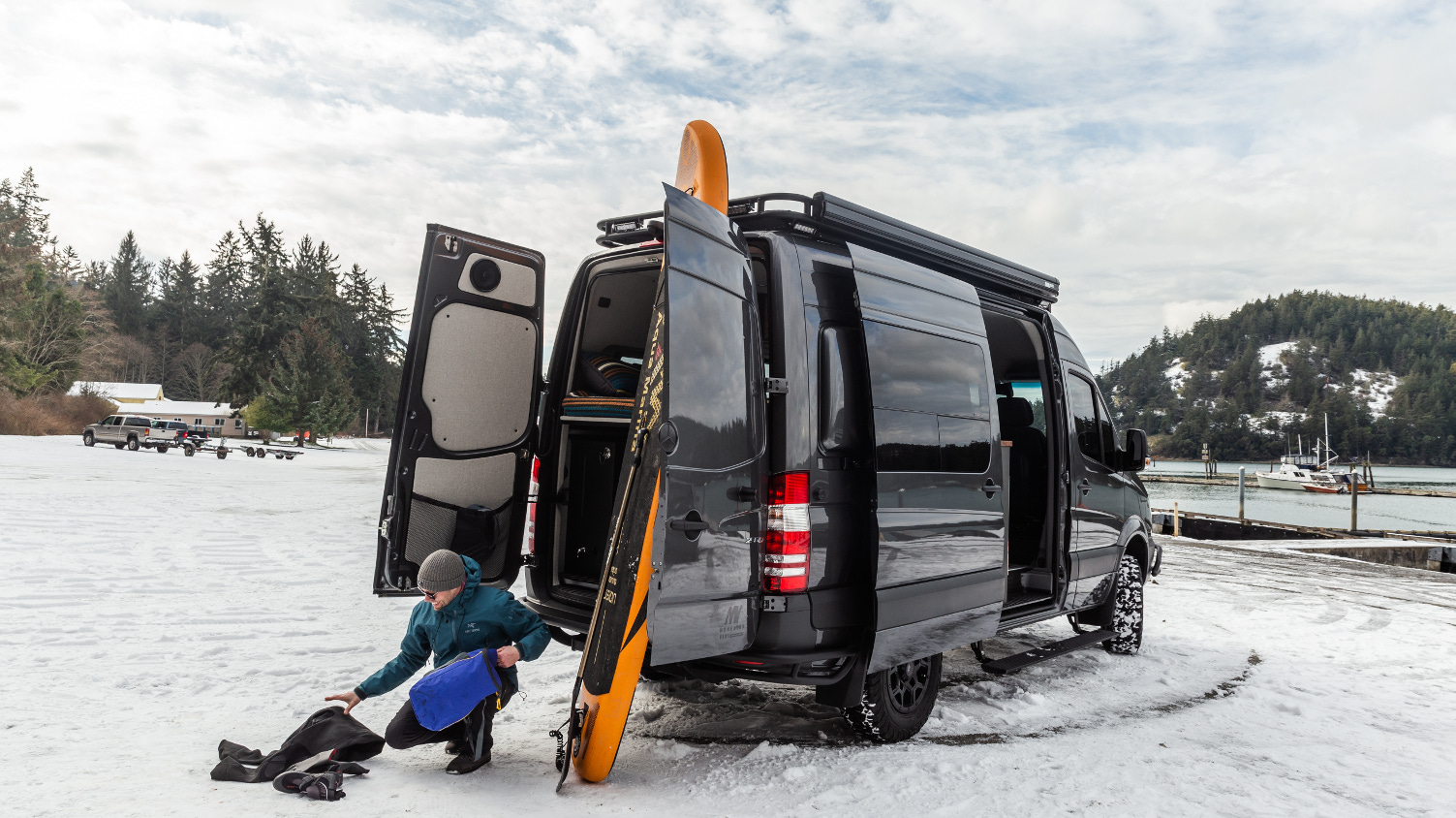
Momentum Vans – New journeys ahead
With Covid-19 restricting people’s travel by more traditional transportation methods, Momentum Vans has seen a considerable uptick in interest in its products over the least year. People are still looking to explore the vast American outdoors, but also to maintain their social distance, all from the safety of a private mobile base.
The company’s strong presence on social media helps a great deal, in ways that Wright describes (positively) as “absolutely crazy”. In other words, some people scroll through Instagram, see a Momentum van, and then call up and place an order in the region of $150,000.
It’s testament not just to how much shopping habits have changed, but also to how people find desirable new products to buy in the first place.
Happy customers then share their own Momentum-based adventures on social media, boosting exposure and often drawing interest from further afield.
The craziest request that the team has turned down was for a bathtub to be installed – but most suggestions have been realised in some form or other and squeezed onboard. That means there are few limitations to the home comforts customers can experience, wherever their sense of adventure takes them.
